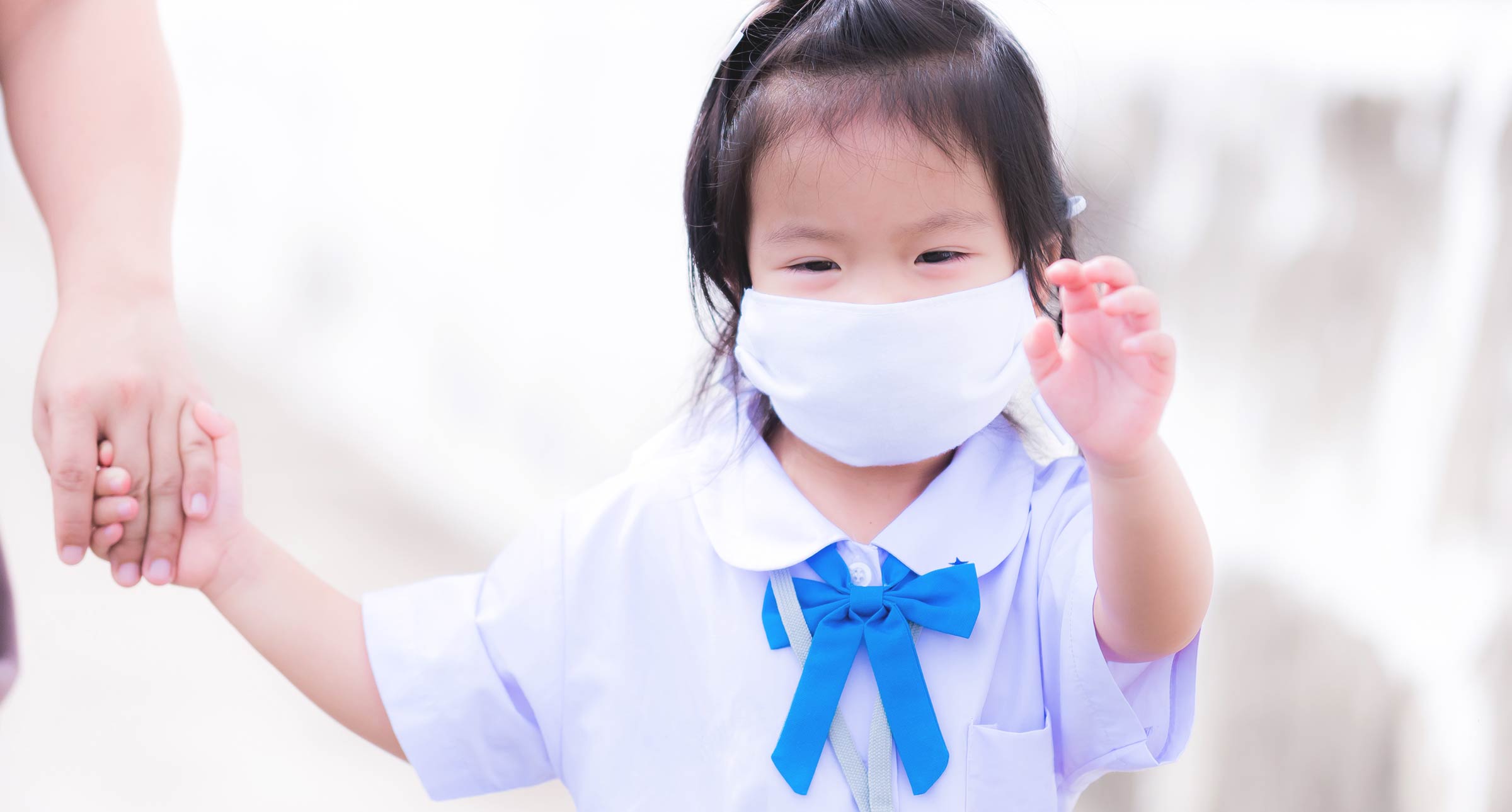How Can I Help My Child Wear a Mask?
In the wake of the current COVID-19 pandemic and children returning to school, many children are feeling anxious about having to wear a mask for long periods of time while at school or out in the community. Here are a few tips for parents to help make their children feel more comfortable about our “new norm” of mask wearing.
1. Talk to your child
Talk to your child about why we are wearing masks. Use language that is easy for your child to understand and speak calmly. For example, “There is a germ in the community and we need to wear masks to keep ourselves healthy”.
2. Engage your child
Engage your child in picking out or helping to design or decorate their own mask, so that they will look forward to wearing it.
3. Choose a fabric
Choose a fabric that is comfortable and make sure their mask is properly fitted. This will prevent them from touching or readjusting their mask often throughout the day and will promote better compliance.

4. For anxious kids
For those children that are feeling more anxious, you can put cloth masks on their favorite stuffed animals or dolls to help develop a sense of normalcy of seeing masks around them. If your child is older, show them pictures of their favorite celebrities, superheroes or idols wearing masks to give them courage to wear masks themselves.
5. Practice, practice
To adjust your child to wearing a mask for a prolonged period of time, start implementing mask wearing at home, for example during their recreational screen time. While they are engaged in their TV show or videogame, they will forget the mask is even on!
6. Lead by example
Remember that children learn by example. By adults wearing masks responsibly in the community, we will demonstrate to our children how to wear masks as well!
Lastly, anxiety is normal
It is a normal response for children to be nervous or scared about having to wear a mask.
Open communication, validating their concerns and the above measures will help ease the transition of wearing masks as part of your child’s daily routine.
Download our free resource: Strategies to Help Kids Wear a Mask
Good Luck, and Happy Parenting!






































